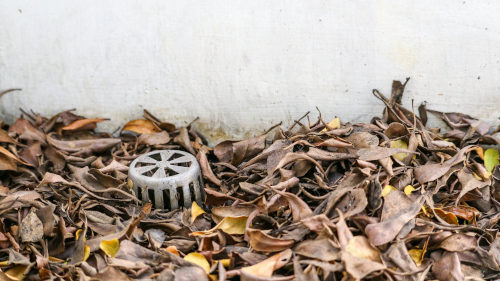It seems like we were just hanging out at the beach, visiting the park in shorts, and enjoying the warmth of the summer sun in general. Then the weather started to shift. The sun is still out, but the days aren’t as warm. Now many homeowners have begun the mad rush to prep their homes for the winter months. Let your worries drop away. Prevent plumbing problems at your house by following our fall home maintenance guide below.
1. Clear Your Gutters and Downspouts
Leaves, needles (from evergreen trees), berries, and small twigs all get caught in your gutters, preventing water from flowing off your roof and away from your house. Take the time to clear them now before the cold comes. Pooling water can get into your home through your roof. That pooled water can cause freezing in the winter on your roof or even on your sidewalk, causing slipping hazards.
2. Shut Off Outdoor Water Sources
Water taps and facets on the outside of your house need to be shut down for the season. There should be an “off” setting inside. Make sure to clear the water from these facets and the connective pipes to prevent freezing during the winter. This practice will also help stop basement flooding. While you are at it, disconnect, drain, and store your gardening hoses.
3. Close Up Your Pool and Pond
Now is the time to shut down your outdoor water features if you still haven’t. The manufacturer will have instructions on how best to close down your pool or pond for the season. Clear any leaves or debris that gathered here during the early fall. Then empty the water and scrub down the pool or pond before adding a cover so it can be all ready for spring.
4. Protect Your Foundation by Clearing Around Your Home
Piles of debris capture water and lead to problems down the line. Clear any leaves or branches from the perimeter of your home, including any decking or porches. When the cold comes, these blockages can lead the water right inside your home.
Call in the Professionals for Complete Safety
After these steps, your home will be set up for the cold to come. The sooner you get to these steps, the better for your home. The team at Kelly Plumbing and Leak Detection are licensed and certified plumbers experienced in preventing and solving leaking problems.
Give us a call today at 972-774-8722 to schedule a visit from one of our professional plumbers


